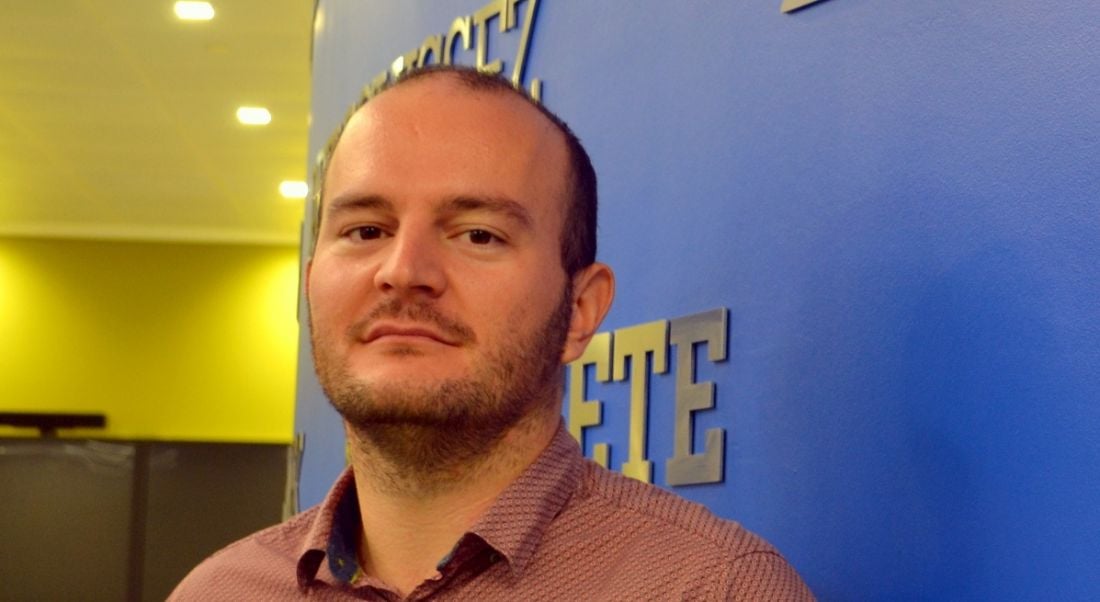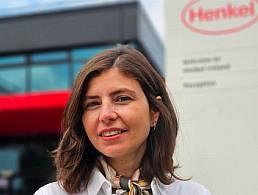Not all AI will be bad for future jobs. At IBM, researchers are looking at how it can have a positive societal impact.
There have been more conversations than we’re willing to count about the idea of robots coming to take our jobs.
With the advancements of artificial intelligence (AI) and their increasing ability to take over a number of jobs once undertaken by humans, it’s only natural for us to wonder.
However, with so much fear around AI taking jobs away from us completely, it can often be difficult to recognise how much easier it can make our working lives.
Spyros Kotoulas is a researcher at IBM developing new techniques that will improve healthcare systems and give care professionals more time to do the job they’re really skilled at: helping people.
What is your role within IBM Research?
Manager of health and person-centred systems.
What education and other positions led you to the role you have now?
With a PhD in AI, I started as a research scientist in IBM. Before that, I was working for a university in the Netherlands.
Can you tell us about the research you’re currently working on?
In summary, I work with technology to help people that help people.
Imagine trying to solve a Rubik’s cube by only looking at one side – that’s not unlike the challenge many care systems face today. My research is to look at the whole of the Rubik’s cube and the integration of the systems of care to offer better patient-care management.
Given that a typical high-risk patient visits many care settings – including ambulatory, acute, long-term care, rehabilitation, home and specialty care – you can begin to see that the systems for the people helping a patient in their care are complex.
To date, many healthcare and social-care organisations use enterprise data warehouses to analyse their patient data retrospectively – that is, they harness analytics to find out how their patients and subpopulations fared in the past.
This can be useful in constructing a baseline for quality improvement and utilisation management of a patient, but it has limited value in complete care management because a patient’s health needs are constantly evolving.
This retrospective descriptive approach to care is also not designed to predict the future health status of the individual patient, the cost of their care, nor the population as a whole.
At IBM Research Ireland, we are developing new techniques to help care professionals and systems better understand the complex social, behavioural and clinical issues that vulnerable populations are facing.
We are building AI solutions for cognitive care management that work together with the users, understanding context, anticipating their needs and supporting their workflow.
We have done some visionary work, and some early ‘graduations’ into production, of systems that shift focus on helping people, rather than solving acute problems.
What first stirred your interest in this area?
Initially, I was focused on how to improve cities for their citizens. From that point, I have moved to trying to understand the challenges that the most vulnerable members of society face.
This is what has brought me into social care and healthcare informatics.
If there is such a thing, can you describe a typical day for you?
Cognitive computing systems depend on various aspects of AI, such as machine learning, reasoning, natural language processing, speech and vision, human-computer interaction, dialogue, narrative generation, and more.
As a data research scientist, it’s all about understanding where we should go next with these cognitive systems and how we will get there working with the experts in their domain, be it healthcare, government, banking etc.
My work involves working with people across countries, divisions and disciplines. No two days are the same.
What skills and tools do you use on a daily basis?
Besides software and data science skills, you need to use soft skills and motivate a team. It’s all about collaboration.
What applications do you foresee for this research?
My current research is helping to deliver cognitive capabilities for patient-care management. It combines AI, data integration, analytics and coordination of care management capabilities to provide a complete view of the individual patient as well as helping populations.
The cognitive aspect of my research is currently being used to build on a system that helps care managers identify clients in need of care, assess their needs, establish the appropriate plan to support their needs, manage care, and monitor results and patients’ outcomes.
Are there any common misconceptions about this area of research?
A common misconception is that we are trying to automate care workers. In reality, you can’t automate compassion.
Our real goal is to automate mundane tasks (such as documentation, which can take the majority of time for a care professional) so that care workers can do what they do best: help people.
When you first started work as a researcher, what were you most surprised to learn was important in the role?
You need to work with dozens of people in order to see some of your research into the hands of people.
What do you enjoy most about your career in research?
The opportunity to have societal impact while working on challenging and diverse problems. It’s all about the big problems in our field.




